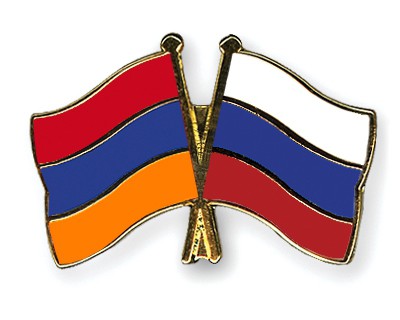As we said in a previous note last year, Western Armenian (*) and English share a grammatical feature: they both use negative words with affirmative verbs.
You cannot use double negative in Western Armenian (except for understated affirmation). Therefore, you may say either Ոչ մէկը գիտէ (Voch mege kideh) or Մէկը չի գիտեր (Mege chee keeder) to mean “nobody knows,” but you cannot say ոչ մէկը չի գիտեր (Voch mege chee keeder), which would be as grammatically correct as “Nobody doesn’t know.”
Similarly, you may say «Ոչինչ ունիմ» (Vocheench ooneem) or «Բան մը չունիմ» (Pan me chooneem) to say “I have nothing” or “I don’t have anything” but «Ոչինչ չունիմ» (Vocheench chooneem) would be the equivalent of… “I don’t have nothing.”
Here is a list of negative words that are commonly, and wrongly, paired with negative verbs. The accurate form is as follows:
Ոչ ոք ըսած է – Voch vok usadz eh – Nobody has said [anything]
Ոչինչ ըսած է – Vocheench usadz eh – (He/she) has said nothing
Ոչ մէկը ըսած է – Voch mege usadz eh – No one has said [anything]
Ոչ մէկ բան ըսած է – Voch meg pan usadz eh – (He/she) has said nothing
Ոչ մէկ պարագայի ըսած է – Voch meg barakayi usadz eh – (He/she) has said in no circumstance
Ոչ մէկ անգամ ըսած է – Voch meg ankam usadz eh – (He/she) has never said
Ոչ մէկ կերպով ըսած է – Voch meg gerbov usadz eh – (He/she) has said in no way
There is also a little list of affirmative words that should be paired with negative verbs:
Որեւէ բան տեսած չէ – Voreve pan desadz che – (He/she) has not seen anything
Ոեւէ մէկը տեսած չէ – Voyeve mege desadz che – (He/she) has not seen anyone
Բնաւ տեսած չէ – Pnav desadz che – (He/she) has not seen (anyone) once
Երբեք տեսած չէ – Yerpek desadz che – (He/she) has never seen (anyone)
Remember: you don’t need to say “no” twice. Once is enough.
(*) This rule doesn’t apply to Eastern Armenian, which uses negative words with negative verbs, like Russian.

